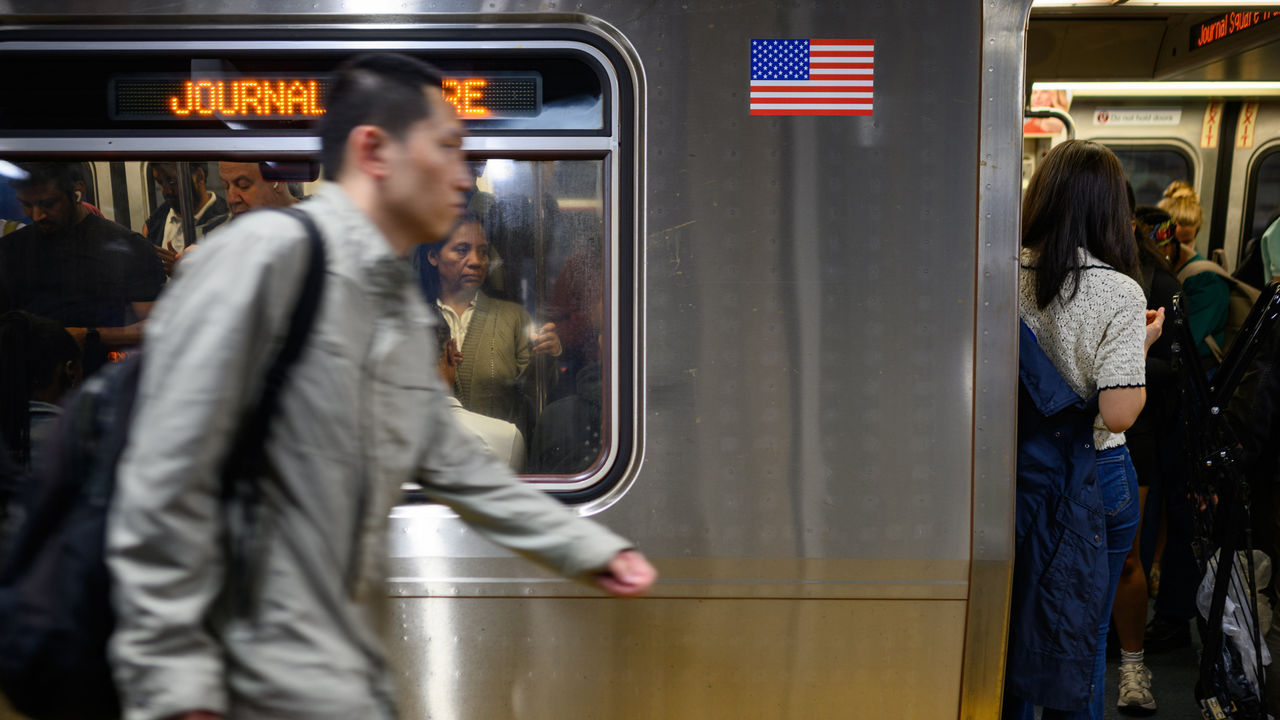AI And The Future Of Work: Understanding Job Security In The Age Of Automation

Welcome to your ultimate source for breaking news, trending updates, and in-depth stories from around the world. Whether it's politics, technology, entertainment, sports, or lifestyle, we bring you real-time updates that keep you informed and ahead of the curve.
Our team works tirelessly to ensure you never miss a moment. From the latest developments in global events to the most talked-about topics on social media, our news platform is designed to deliver accurate and timely information, all in one place.
Stay in the know and join thousands of readers who trust us for reliable, up-to-date content. Explore our expertly curated articles and dive deeper into the stories that matter to you. Visit Best Website now and be part of the conversation. Don't miss out on the headlines that shape our world!
Table of Contents
AI and the Future of Work: Understanding Job Security in the Age of Automation
The rise of artificial intelligence (AI) is transforming industries at an unprecedented pace, sparking both excitement and apprehension about the future of work. While AI promises increased efficiency and productivity, concerns about job displacement and the evolving nature of employment are at the forefront of many minds. Understanding the impact of AI on job security is crucial for navigating this technological revolution.
The Shifting Landscape of Employment
AI-powered automation is already impacting various sectors, from manufacturing and transportation to customer service and data analysis. Repetitive tasks are increasingly being automated, leading to a shift in the demand for human labor. This doesn't necessarily mean widespread unemployment, but it does signal a significant reskilling and upskilling imperative. Jobs requiring creativity, critical thinking, complex problem-solving, and emotional intelligence are less susceptible to automation, at least in the foreseeable future.
Jobs Most at Risk & Least at Risk:
It's important to distinguish between jobs at high risk and those relatively safe from immediate automation.
High Risk:
- Data entry clerks: AI can easily process and categorize data far more efficiently than humans.
- Truck drivers: Self-driving technology is rapidly advancing, posing a significant threat to this profession.
- Telemarketers: AI-powered chatbots can handle many customer service interactions.
- Factory workers (repetitive tasks): Automated robotic systems are increasingly prevalent in manufacturing.
Low Risk:
- Doctors and Surgeons: While AI can assist in diagnosis and treatment, human expertise and empathy remain crucial.
- Software Engineers: AI development itself requires human ingenuity and problem-solving skills.
- Teachers: The human element in education is irreplaceable, although AI can be a valuable tool.
- Nurses: Empathy, critical thinking and complex decision-making are key aspects of nursing that are currently beyond AI's capabilities.
Adapting to the AI Revolution:
The key to navigating the changing job market lies in adaptability and continuous learning. Individuals and organizations alike must embrace lifelong learning to acquire new skills and adapt to the evolving demands of the workforce.
Strategies for Maintaining Job Security:
- Focus on transferable skills: Develop skills applicable across various industries, such as communication, problem-solving, and critical thinking.
- Embrace lifelong learning: Invest in continuous education and training to acquire new skills and knowledge in emerging fields like AI and data science.
- Develop specialized skills: Focus on areas where human expertise remains vital, such as complex problem-solving, creative thinking, and emotional intelligence.
- Network and build relationships: Strong professional networks can provide valuable opportunities and support during times of change.
The Role of Governments and Businesses:
Governments and businesses have a crucial role to play in mitigating the negative impacts of AI on employment. Investing in education and training programs, providing social safety nets, and promoting responsible AI development are crucial steps. Furthermore, businesses should prioritize reskilling and upskilling their workforce to prepare for the future of work.
Conclusion:
The future of work in the age of AI is not simply about job displacement; it's about transformation and adaptation. While some jobs will inevitably be automated, new opportunities will emerge. By embracing lifelong learning, developing in-demand skills, and collaborating across sectors, we can navigate this technological revolution and ensure a future where AI enhances, rather than replaces, human potential. The key lies in proactive adaptation and a commitment to continuous improvement, both personally and collectively. Learn more about the impact of AI on different industries by exploring resources like [link to a reputable source on AI and the future of work].

Thank you for visiting our website, your trusted source for the latest updates and in-depth coverage on AI And The Future Of Work: Understanding Job Security In The Age Of Automation. We're committed to keeping you informed with timely and accurate information to meet your curiosity and needs.
If you have any questions, suggestions, or feedback, we'd love to hear from you. Your insights are valuable to us and help us improve to serve you better. Feel free to reach out through our contact page.
Don't forget to bookmark our website and check back regularly for the latest headlines and trending topics. See you next time, and thank you for being part of our growing community!
Featured Posts
-
 Nba Western Conference Finals Timberwolves Collapse Sets Stage For Okcs Game 5 Clinch
May 29, 2025
Nba Western Conference Finals Timberwolves Collapse Sets Stage For Okcs Game 5 Clinch
May 29, 2025 -
 Roland Garros Night Slot Allocation A Focus On Fan Enjoyment
May 29, 2025
Roland Garros Night Slot Allocation A Focus On Fan Enjoyment
May 29, 2025 -
 Early Ssi Payment In June 2025 Full Payment Schedule Inside
May 29, 2025
Early Ssi Payment In June 2025 Full Payment Schedule Inside
May 29, 2025 -
 College Football Playoff Expansion Sankey Addresses Sec Coaches On 5 11 Plan
May 29, 2025
College Football Playoff Expansion Sankey Addresses Sec Coaches On 5 11 Plan
May 29, 2025 -
 Serie A Pioli Ritorno In Italia Analisi E Prospettive
May 29, 2025
Serie A Pioli Ritorno In Italia Analisi E Prospettive
May 29, 2025
